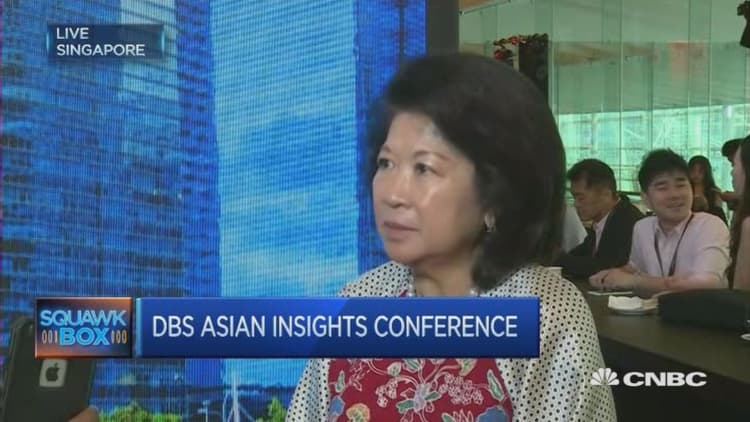The battle over whether to ratify the Trans-Pacific Partnership (TPP) trade deal has shown how toxic the U.S. political environment had become, said Tommy Koh, Singapore's ambassador-at-large for foreign affairs.
Historically, Republicans had always supported free trade, but now the mood has turned nationalistic, said Koh, who called himself an "accidental diplomat" despite 50 years of working within the Singapore government. The collegiality between the two major parties has also disappeared and the atmosphere is now a "civil war", said Koh at the DBS Asian Insights conference in Singapore on Thursday.
It's become party first and nation second, he said.
That may hold up the TPP for years to come, said Koh, who helped negotiate Singapore's bilateral free trade agreement with the U.S.
Some still hold out hope that the deal will proceed, despite both U.S. presidential candidates opposing it.
Mari Pangestu, Indonesia's former trade minister, said she expected that the TPP might proceed in the U.S. with some renegotiations of issues, similar to then-President Bill Clinton's renegotiation of some aspects of the North American Free Trade Agreement (NAFTA) before it was ratified.

Koh was a bit more pessimistic about those prospects, noting that it took the 12 countries five years to reach a deal, and many countries had already made the maximum concessions that would be politically possible.
But Koh added that while the chances for passage this year weren't good, they also weren't zero. He was holding out hope that the lame duck session of Congress after the November presidential elections, but before the new government takes power, would result in a vote to ratify the treaty. He noted that while some Republican politicians may not like President Barack Obama, they tend to love the TPP, even if their presidential candidate doesn't.
Even if TPP isn't ratified, Pangestu said it's already had a positive impact on the Asian region.
She noted that the deal pushed reforms around the region and created a template for discussion on what steps were needed, particularly on anti-corruption policies.
The political pushback against TPP in the U.S. hasn't necessarily impacted how the Asian region views it.
Reuters reported on Thursday that the Philippines wanted to join the TPP and had already had informal talks with the U.S. to do so, according to the country's Trade Secretary Ramon Lopez.


